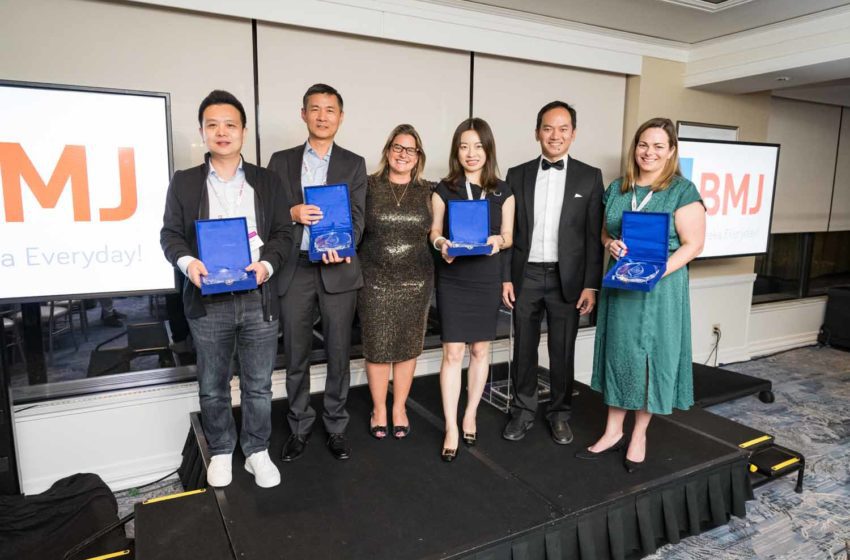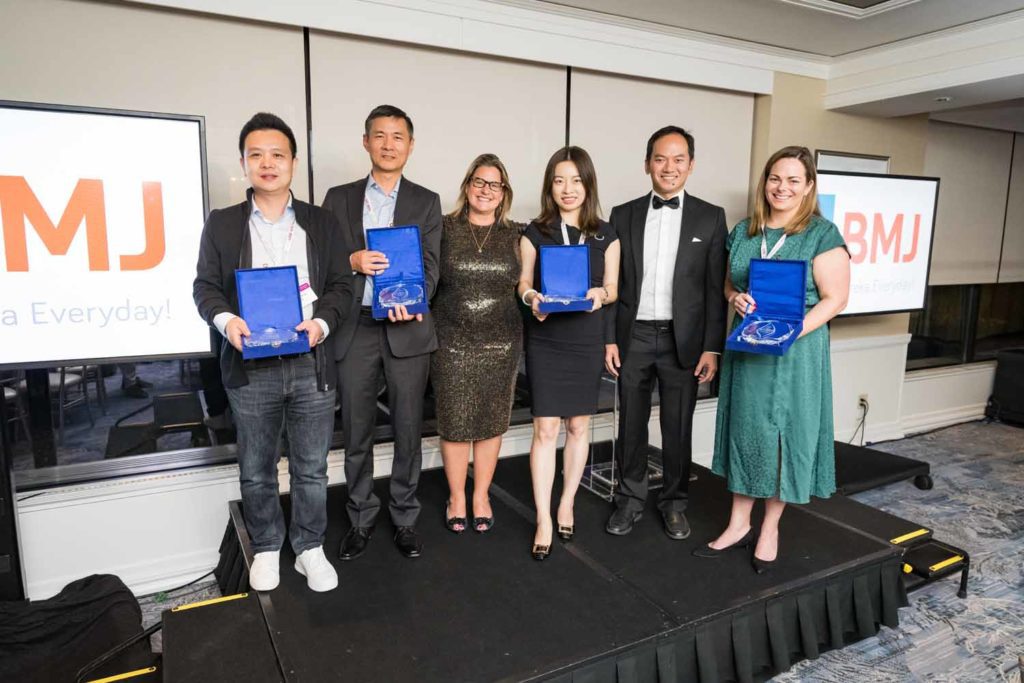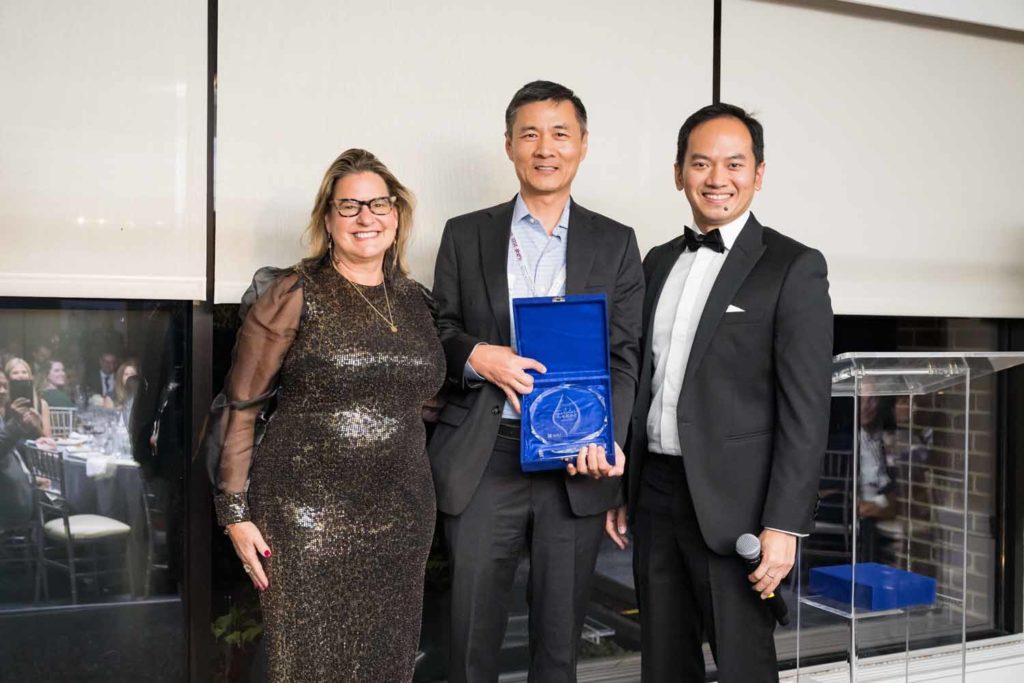Announcing the 2022 Golden Leaf Awards
- Golden Leaf Awards
- October 26, 2022
- 0
- 9 minutes read


Tobacco Reporter presents its 2022 Golden Leaf Awards.
It’s hard to exaggerate the extent of the changes that have taken place in the nicotine business since the Golden Leaf Awards were conceived more than 15 years ago. When the program debuted in 2006, the news headlines in Tobacco Reporter were mostly about consolidation, privatization and litigation—topics associated with a controversial legacy business playing defense in an increasingly hostile environment.
Fast-forward to 2022 and the landscape has changed completely. Many of our columns are now dedicated to tobacco harm reduction—a goal that has become feasible in the wake of the breathtaking innovations that have occurred in recent years (which are eloquently described in Tobacco Reporter’s April 2022 special innovation issue). The transformation has been so great that a reader from 2006 would likely struggle to recognize many of the devices evaluated in our new products section.
Environmental, social and governance (ESG) topics also feature prominently in our news coverage today, reflecting a societal shift in attitudes. Corporations are not only more aware of their societal responsibilities but are also prepared to make a difference. The Golden Leaf Award’s exclusive sponsor, BMJ, for example, has developed impressive programs to reduce the amount of water and energy used in its papermaking process, to source its wood pulp sustainably and to meaningfully engage its employees (for more information, visit www.bmjpaperpack.com).
To better reflect these changing industry dynamics, the Golden Leaf Awards will place greater emphasis on innovation and ESG initiatives going forward. Starting this year, our judges will recognize initiatives designed to deliver a brighter future not only for the manufacturers and consumers directly involved but also for society at large.
In the 2022 edition of our awards program, we recognize three companies for various types of innovation and one company for its ESG initiatives. The winners accepted their trophies during a ceremony at the Four Seasons Hotel in Georgetown, Washington DC. We hope that you agree with our judges that the awarded products and programs hold significant potential to help deliver what one well-known multinational on the forefront of our industry’s transition describes as “a better tomorrow.”

ALD Group has earned a Golden Leaf Award for its Green Cig, an eco-friendly disposable vaping solution.
Driven by regulatory and competitive developments, disposable e-cigarettes have captured significant market share in recent years. In the United States alone, they now account for about a third of the vapor market, according to data from the market research firm IRI. But while disposable products offer convenience, they also raise environmental issues.
Alert to societal concerns about mounting waste, ALD Group has developed an e-cigarette with components that are easy to detach and recycle.
By using biodegradable plastic materials, including PLA and PBAT, for the Green Cig shell and eco-friendly paper-plastic materials for its packaging, ALD Group has managed to decrease the carbon footprint of its vaporizer by approximately 36 percent over that of similar products—without compromising on taste and flavor.
The degradation rate of the bioplastic component reaches up to 80 percent, according to ALD Group, while battery life is prolonged by sophisticated technology that prevents dry burning.
Recyclable parts of the Green Cig include its battery, pressure sensor, pogo pin and atomizer. To promote pod recycling, ALD Group has partnered with a third party to develop a program aimed at giving discarded pods a second life.

Pyxus Agriculture Malawi (PAM) has earned a Golden Leaf Award for its efforts to promote responsible fuel production in Malawi.
Deforestation is a challenge in many tobacco origins. In Malawi, the main contributors are agriculture and fuel production. About 7 percent of Malawi’s wood is used for curing tobacco or as a construction material for barns.
In recent years, Malawi has been transitioning from wood as a fuel source to charcoal, which is easier to obtain than electricity or gas in the region. Unfortunately, the systems currently used to produce charcoal are unregulated and threaten woodlands.
PAM is addressing this threat by utilizing existing business structures to produce charcoal responsibly. The company has 15 forest plantations across Malawi that supply firewood to tobacco farmers contracted by its Alliance One Tobacco Malawi subsidiary. After harvesting, there is often wood left that does not meet the criteria for tobacco curing. Now, PAM is using this wood to produce charcoal.
The company’s existing track-and-trace technology allows the fuel to be traced back to the source with assurance that any lumber used in the manufacturing process will be replenished within the plantation.
The project not only supports Malawi’s goal to transition from unsustainable wood fuel to sustainable wood fuel but also helps conserve indigenous woodlands. As of November 2021, the initiative was estimated to have saved at least 650 slow-growing indigenous trees. By 2024, PAM aims to be at a level of production that will save more than 12,100 trees per year.

FEELM has earned a Golden Leaf Award for its FEELM Max, the world’s first ceramic coil disposable pod solution.
Almost all disposable pods on the market contain traditional cotton coils, which can compromise flavor, generate a burnt taste and produce hazardous substances due to inaccurate temperature control.
Using FEELM’s updated ceramic coil technology, the FEELM Max offers improved flavor consistency, more puffs and reduced harshness through smaller aerosol particles.
Most importantly, the FEELM Max offers greater potential for harm reduction. The addition of a platinum group element to the ceramic coil’s metallic heating film improves the anti-corrosion performance and reduces the emission of heavy metals.
A 24 karat gold coating of conductive components enhances resistance to oxidation while a ceramic substrate resistant to temperatures of over 1,000 degrees Celsius prevents burns and the creation of hazardous substances.
The introduction of the FEELM Max fits into the company’s mission to enhance the experience for vapers around the world. Founded in 2006, FEELM’s parent company, Smoore, has grown into the world’s leading atomization technology firm, with a 22.8 percent share of the global vaping device market in 2021, according to Frost & Sullivan.
The company operates 10 research centers, including seven in China and three in the United States, with an additional three under construction.

Innokin and Aquios Labs have earned a Golden Leaf Award for the Lota Pod, the first and only water-based vaping solution.
E-juice generally consists of propylene glycol (PG) and vegetable glycerin (VG) along with flavor and nicotine. When heated, PG and VG produce vapor, which allows them to be inhaled. At 189 degrees and 292 degrees Celsius, respectively, the boiling points of PG and VG are relatively high, however.
Adding water to e-liquid brings down the boiling point and vape temperatures, thus reducing harmful substances in vapor. Water also minimizes dehydration and irritation and helps to deliver nicotine more efficiently while producing a more natural flavor.
Until now, the low viscosity level of water made it unsuitable for use in vaping devices at any meaningful level. Aquios Labs developed a technology that can support up to 30 percent water vaping but still needed proper hardware to support its new e-liquid.
Utilizing its extensive experience with vaping hardware, Innokin created new heating, wicking and airflow systems to unleash the potential of water-based e-liquid.
While the vaping industry has become accustomed to major hardware innovations every 12–18 months, e-liquids have been evolving at a gentler pace. Water-based vaping arguably represents one of the most significant breakthroughs since the introduction of nicotine salts in the vaping industry.

